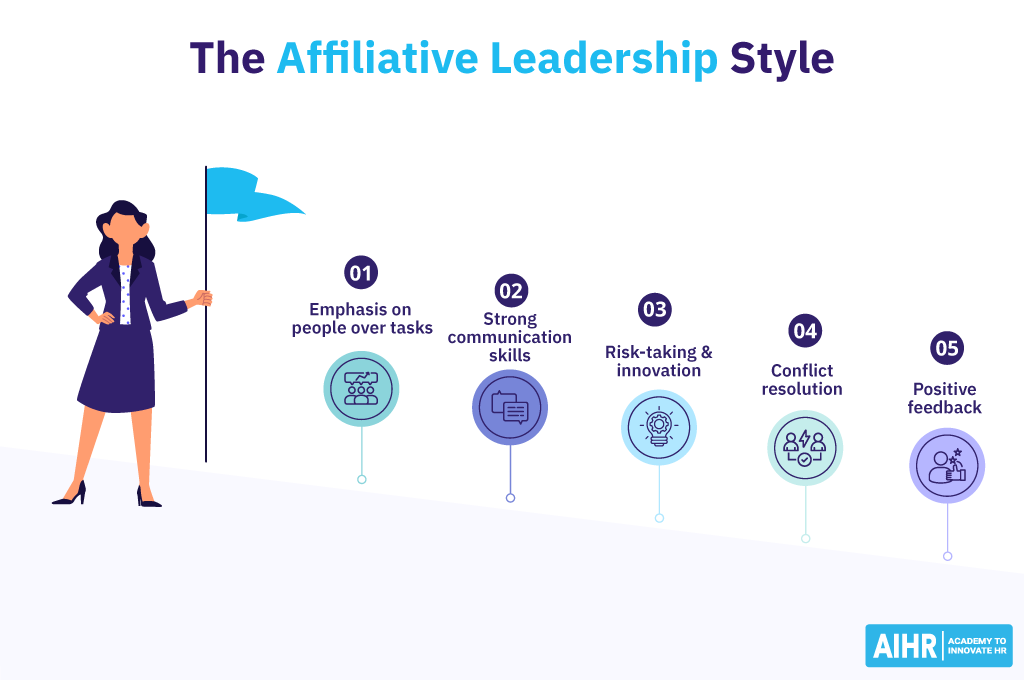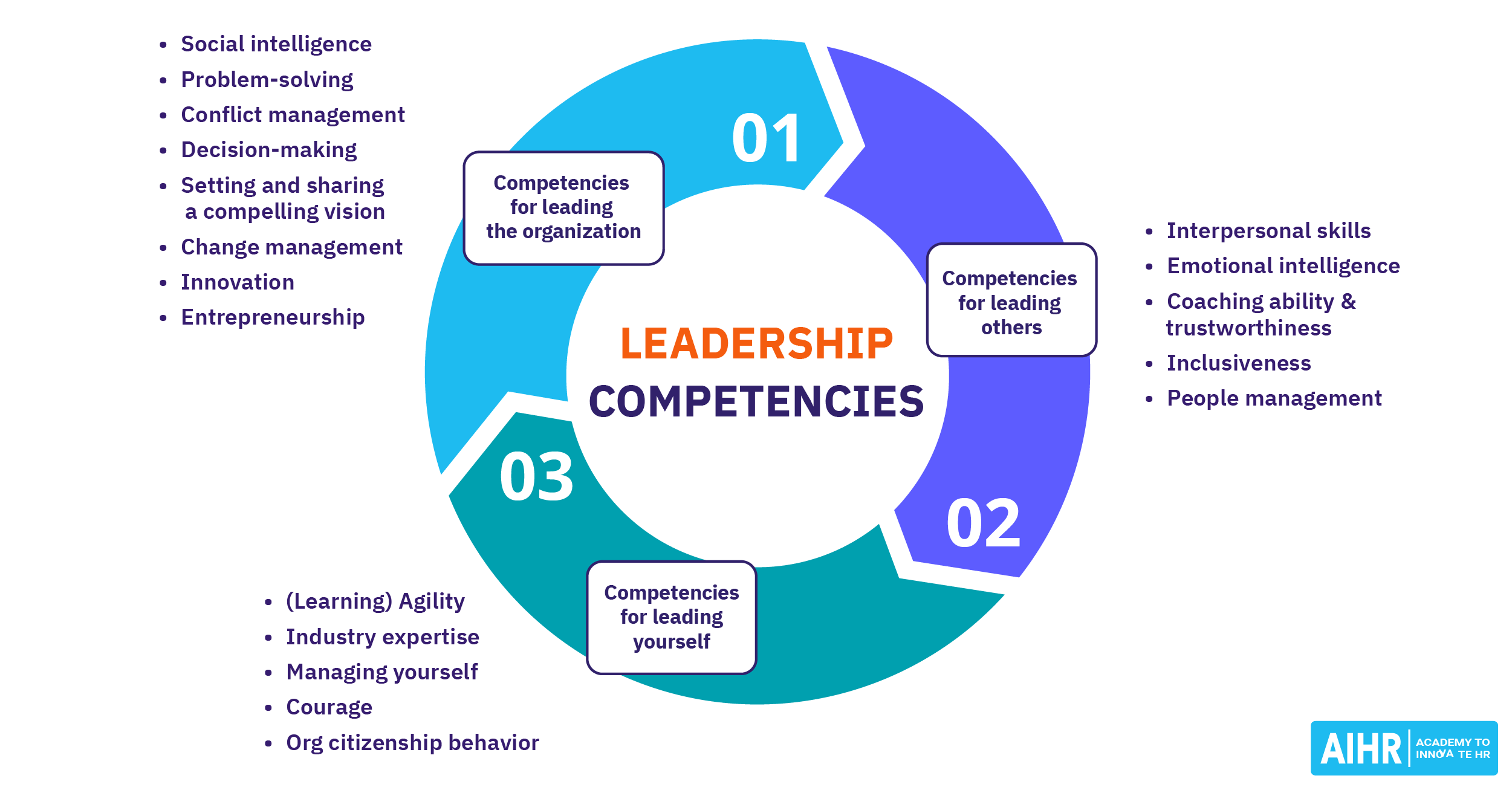Affiliative Leadership
What is affiliative leadership?
Affiliative leadership is a management style centered around creating emotional bonds and harmony within a team or organization. It prioritizes the people, their feelings, and the establishment of a harmonious environment over rigid adherence to tasks or performance goals.
Identified by Daniel Goleman as one of the six leadership styles, this approach strongly emphasizes empathy, communication, and building strong interpersonal relationships.
An affiliative management style is often leveraged by harmonious leaders to address conflicts, motivate during stressful times, and strengthen team bonds, making it a powerful tool for enhancing team cohesion and fostering a positive workplace culture.
The affiliative leadership style
The affiliative leadership style is defined by its emphasis on empathy, team building, and creating strong emotional bonds among team members. Key characteristics of this style include:
- Emphasis on people over tasks: Affiliative leaders prioritize the emotional needs of their team members over the tasks at hand. They believe that a happy team is more productive and cohesive.
- Strong communication skills: Effective affiliative leaders have excellent communication skills, enabling them to convey empathy, listen actively, and articulate their vision in a way that resonates emotionally with their team.
- Conflict resolution: This type of leader excels at mediating conflicts and bringing team members back together. They focus on maintaining harmony within the team.
- Encouragement of risk-taking and innovation: In a supportive and trusting environment, team members feel safe to take risks and innovate.
- Positive feedback: Affiliative leaders often use positive reinforcement to motivate their team. They are more likely to acknowledge and reward good work, which helps build a positive workplace environment.

Affiliative leadership style pros and cons
As with all leadership styles, affiliative leadership has both advantages and disadvantages. Here are some to consider when using this management style:
| Pros | Cons |
|---|---|
| Boosts morale: Increases team morale and satisfaction by focusing on positive feedback. | Avoids conflict: May avoid necessary confrontations, leading to unresolved issues. |
| Enhances team cohesion: Promotes unity and a strong sense of community, making the team more cohesive and aligned. | Lack of constructive criticism: Insufficient constructive feedback can hinder improvement. |
| Promotes loyalty: Strengthens loyalty and trust within the team and organization. | Risk of mediocrity: May prioritize harmony over high performance, affecting outcomes. |
| Flexible response to stress: Helps teams navigate through stressful times by emphasizing support and understanding. | Difficulty in high-pressure situations: May not provide the decisive leadership needed in crisis situations. |
Affiliative leadership examples
Some famous affiliative leaders who use this affiliative style include:
- Dalai Lama: As a spiritual leader, the Dalai Lama exemplifies the affiliative leadership style through his emphasis on compassion, understanding, and respect for all individuals. He focuses on building peace and harmony among people and nations.
- Joe Torre: A renowned baseball manager, he demonstrated affiliative leadership, most notably with the New York Yankees, by building personal bonds with his players, focusing on empathy and support to navigate the pressures of professional sports.
- Warren Buffet: The American businessman fosters a culture of trust and autonomy across the Berkshire Hathaway companies, treating managers like partners rather than employees. Buffett’s approach is to invest in people he trusts and then give them the freedom to run their businesses.
HR tip
To encourage leaders to be more affiliative, introduce emotional intelligence and teamwork workshops, and celebrate those who foster supportive and empathetic work environments.
Examples of fields where affiliative leadership is most beneficial
- Education: Schools and educational institutions can benefit from affiliative leadership to create a nurturing environment for both teachers and students, promoting cooperation and a sense of belonging.
- Healthcare: Nurses, doctors, and healthcare administrators benefit from affiliative leadership, as it supports a caring and supportive environment crucial for patient care and team collaboration.
- Non-profit organizations: Non-profit leaders often operate within resource-constrained environments where the emotional wellbeing of staff and volunteers is vital for sustaining motivation and commitment to the mission.
- Human Resources: HR plays a key role in shaping organizational culture, resolving conflicts, and ensuring employee satisfaction. Affiliative leaders within HR can help create a workplace where employees feel valued and supported.
These examples highlight the versatility and impact of affiliative leadership across different sectors, underscoring its value in fostering environments where empathy, support, and strong interpersonal relationships are crucial to success.







